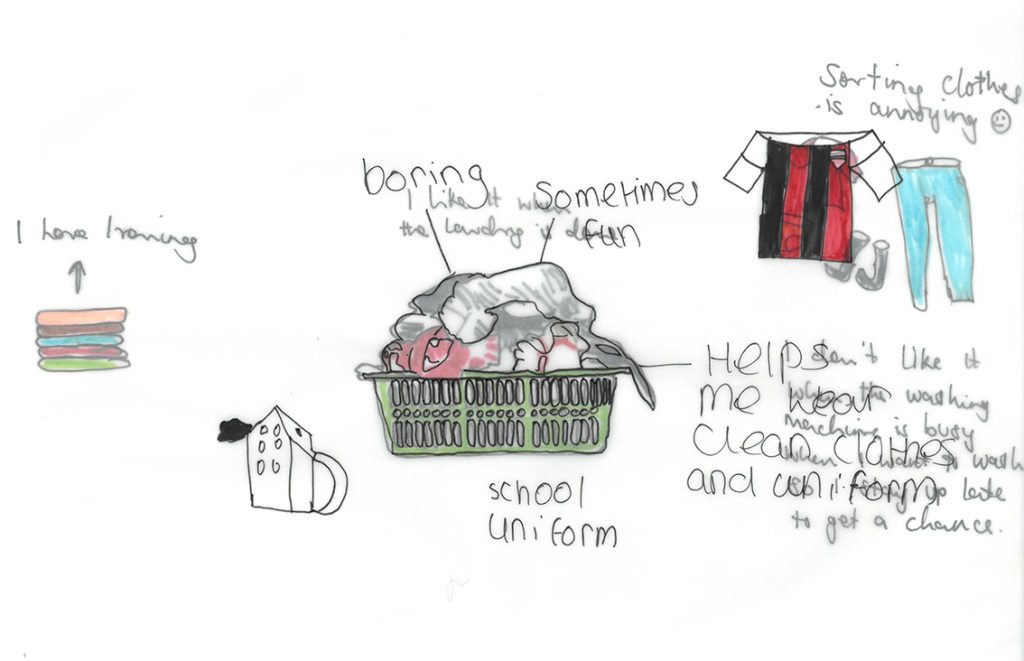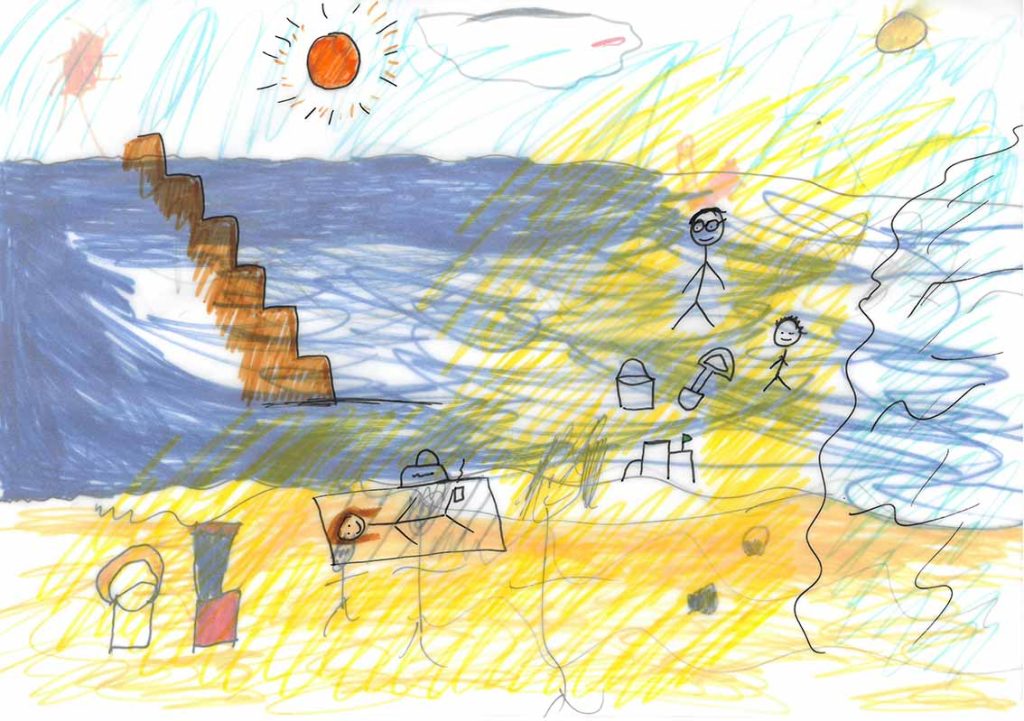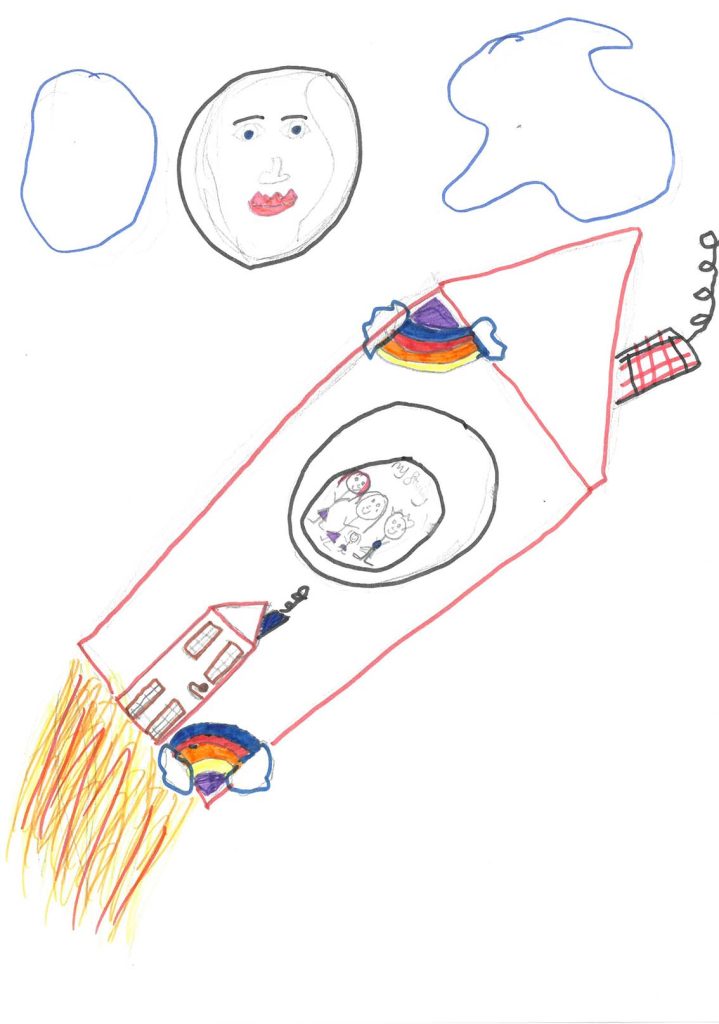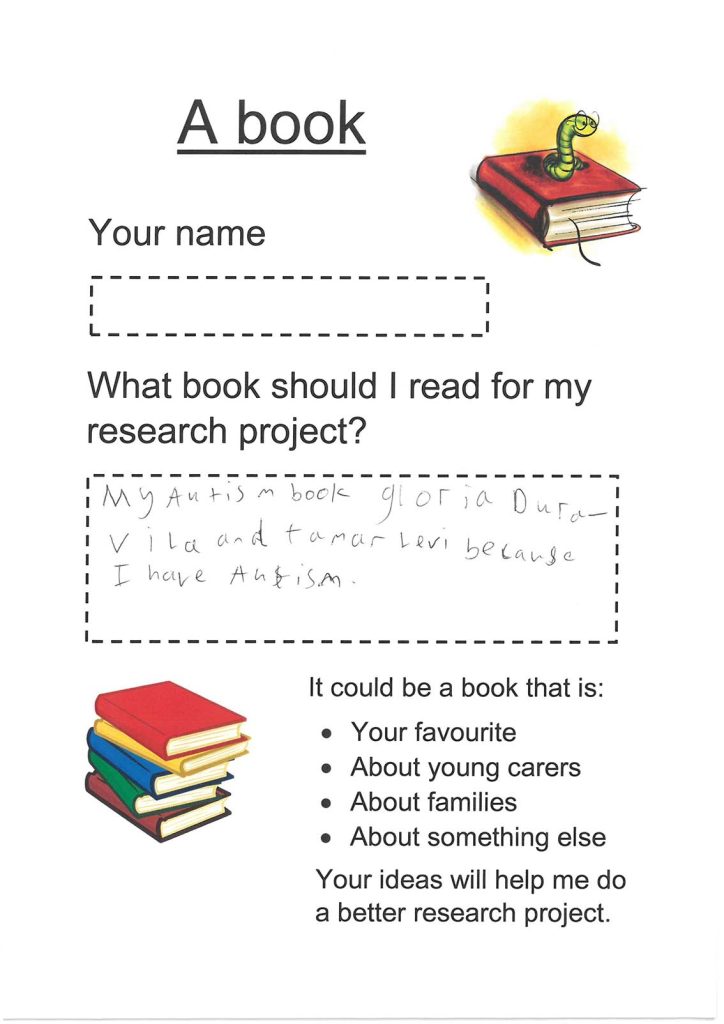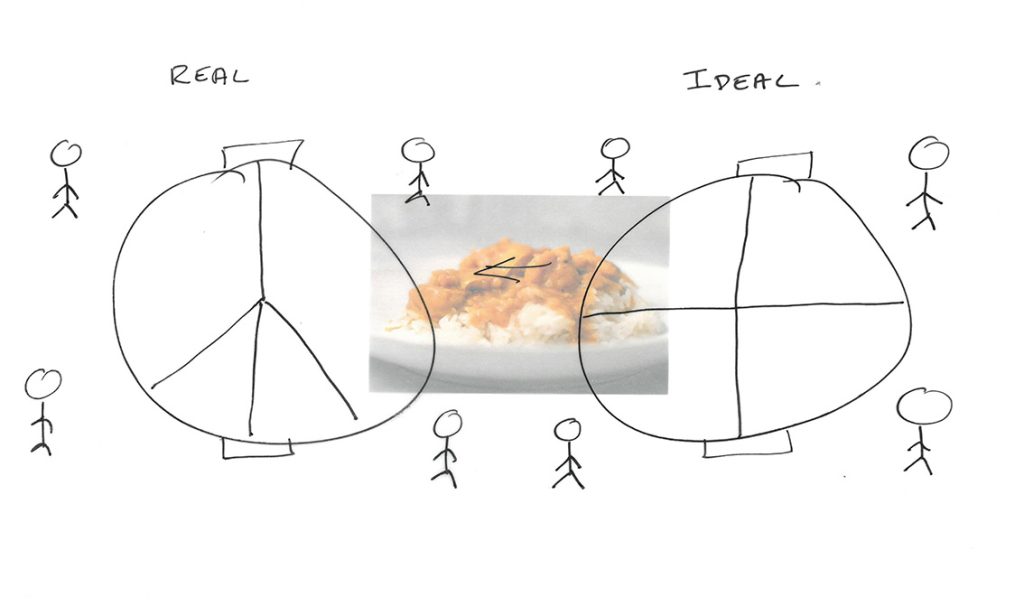Using Arts-based methods for data collection
Arts-based research methods involve using one or more art forms, such as drawing, painting, or theatre performance, in a research investigation. Researchers can use arts methods at different points in the research process: to collect or create data, to interpret and analyse it, or to present and share findings.
The data collection for the ‘Care Trajectories and Constraints’ research will involve using arts-based methods for data collection alongside traditional interview approaches. We think that using artistic or creative methods will appeal to research participants and benefit the research for a number of reasons. The traditional research interview method assumes that speaking, and a ‘question and answer’ approach, usually undertaken in English, is the preferred way to generate knowledge. However, some people may want to participate in the study but may not be comfortable with spoken sessions. In these cases, offering a different way of communicating, say, through drawing a picture, rather than verbally describing, can ensure inclusion of participants who would otherwise not take part.
Using arts-based methods as visual stimuli to open up a conversation – for example, through sharing a photo at the start of a session – can also be an effective way to begin a research encounter. The use of visual cues – brought to the session by either the researcher or the participant – can help participants feel more comfortable to open up and can aid researchers in investigating research topics with more sensitivity than a standard ‘question and answer’ session.
Arts-based methods can also give research participants more scope to express their own interpretations of the topics in question. Instead of being directed towards answering specific questions set by the researcher, a participant can use arts with a bit more freedom: for example, they might draw a particular picture, share or take a specific photo, or create a certain performance that expresses their understanding of a topic. By using and valuing arts-based methods as data collection, researchers are recognising and valuing these different ways of generating knowledge. We are also recognising that what we, academics, might pre-suppose to be the important topics to research are not necessarily the topics that matter to the research participants.
Using arts-based methods can also shift the ways in which participants engage in a research study, The participant can be more actively – physically – involved, whether they are painting or acting, and this has the potential to support their individual wellbeing. As researchers, we are tasked with ‘doing no harm’ in the process of conducting our investigations but we would like to try to raise this somewhat low bar and contribute to participants’ wellbeing through research engagement.
Presentation
In this video, Dr Chloe Alexander, a researcher for the ‘Care Trajectories and Constraints’ study, working on the research strand ‘Transitions & Care’, discusses why and how she used arts-based methods as data collection in her PhD research with young carers and their families.
Gallery
Below you can see images made by participants in Chloe’s study.
More about Jayanthi and Chloe
Jayanthi joined the Centre for Care in July 2022 as a Research Associate working in the team Care Trajectories and Constraints, with a focus on researching Borders and Care. Jayanthi is working with Professor Majella Kilkey on the research Borders and Care. The study examines the role of bordering processes in shaping experiences of care among racially minoritised/Black, Asian, Minority Ethnic and Refugee people in the UK.
Chloe Alexander is a Research Fellow at the Health Services Management Centre, University of Birmingham, and is a Fellow of the NIHR School for Social Care Research. She specialises in qualitative and theoretical inquiries into the politics of care, particularly focussing on the experiences of children and the impact of inequalities. Her PhD research on young carers, family life and intersecting inequalities was awarded the Social Policy Association Prize for Excellence in Doctoral Research 2020.
More commentaries

Lucy Wood writes about the recent Carer’s Trust all day event – Caring Across London: Collaborating for change.
Read More about Carers Trust: Caring across London
We are very pleased to launch our new impact report today, ‘Towards a better future for care’.
Read More about Towards a better future for care: Centre for Care Impact report (November 2021-April 2025)
Robert Walker and PJ Annand explore how lived experience in care research is valued and recognised, and why this has led to a change in the Centre for Care’s payment policy.
Read More about Why we updated our co-production payment rates (and what it means): a shared reflection
Ella Monkcom writes about connecting with experienced researchers on a recent trip to Australia, providing her with conceptual and empirical insights which will impact her thesis.
Read More about Care, migration and social research in a new context: How my academic visit to Australia is shaping my thesis

